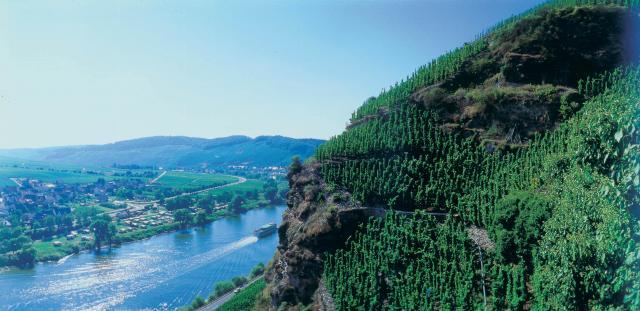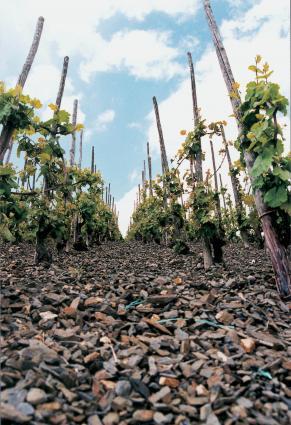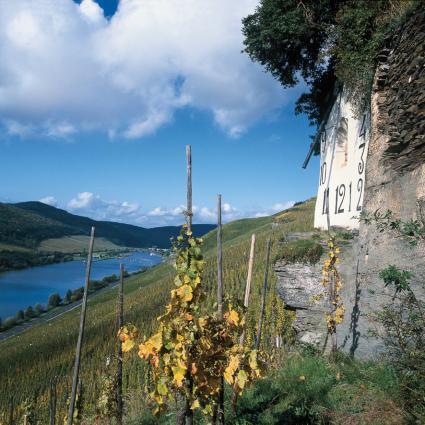Clean Slate Riesling

Wine Description
The thin slate stones of our vineyards in the Mosel River Valley are a critical factor in crafting a Riesling of exquisite balance. So precious are these stones that those which slip into the river are carefully carried back up the treacherously steep vineyard slopes and returned to place.
 Acclaim
Acclaim
 Vineyard & Production Info
Vineyard & Production Info
 Winemaking & Aging
Winemaking & Aging
 Analytical Data
Analytical Data
 Wine Production
Wine Production
Healthy grapes, gentle pressing, strict purification of musts, fermentation with selected yeasts under temperature controlled conditions, storage in stainless steel tanks until bottling.
 About the Vineyard
About the Vineyard
The Mosel has a great wine growing tradition of more than 2000 years, brought here by the Romans. It is the home of Riesling and recognized all over the world. The soil with its thin slate stones is a critical factor. Reflecting and retaining heat, the slate is essential to ripening grapes in this cool climate.





